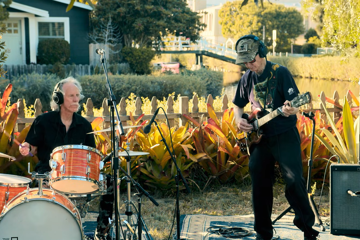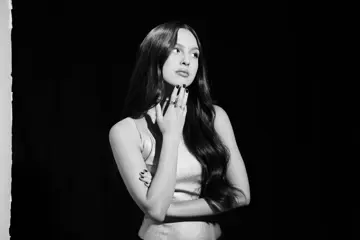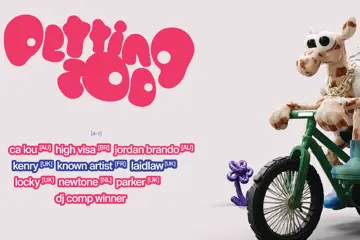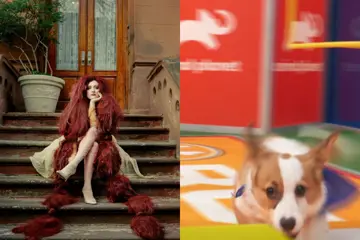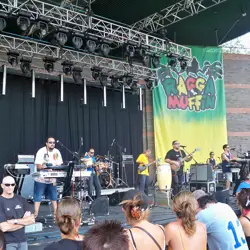 House of Shem
House of ShemReggae, in its purest form, is a style perhaps so far now outside of the mainstream that it's immune to faddism – immune to the silly whims of teenage temperament, and to myopic pop-marketing imperatives. When this notion is put to New Zealand reggae royalty Carl Perkins – formerly of Herbs, Mana and the revered The Twelve Tribes Of Israel – he swiftly interjects with an emphatic Bob Marley quote about reggae being 'the people's music!', and further that he believes it's a genre that will only 'grow and grow' in the public's consciousness in the years to come.
In terms at least of the prospect of a mainstream reggae resurgence, it feels perhaps like the core genre has had its day. Sure, there's a lively contingent of Jamaican hip hop out there, and there was a terrifying few years where everything started coming up reggaeton, but hybrid reggae isn't quite the same thing, and much less the music that House Of Shem creates. Old school reggae is still virulent and abundant for those who seek it, but it's otherwise just benignly unobtrusive for the majority who don't.
House Of Shem, Perkins' current band, is fronted by himself and his two sons Te Omeka and Isaiah. Together with the mission of perpetuating the reggae style, keeping his musical vision in the family has also has quite an important function. With Perkins' sons by his side, House Of Shem's music can be arranged so that it stays fresh and has great compositional momentum, but, because it's sown from the same key staples, everything innate to its being pumps with an intensified unity.
Capitalising on their combined skills, the family early-on formed House Of Shem Productions, which, says Carl, keeps everything centralised and in-house.
“[We] offer services such as production for albums, jingles, [and] singles, and [we] can offer the best reggae sound the South Pacific has to offer,” he hums. “With the best reggae multi-instrumentalists in the South Pacific, we can offer true and authentic reggae music for record labels, bands, and artists.”
Don't miss a beat with our FREE daily newsletter
When you think of music that has a strong, underpinning ethos you think foremost of punk music. But reggae too subsists on something more that just sounds. It's about history, as much as it has associated with it a 'lifestyle,' and it has a lineage that's respected, and revered. This is so fundamental for Perkins, that he insists on sticking to what he loves; he insists that with his reggae music, some things are at their best when they stay the same.
On their most recent album – 2010's Island Vibration – House Of Shem collaborated with one of the same minds that did Marley & The Wailers, and, to paraphrase Perkins, they together deliberately 'kept things the same' as to how they'd sounded on their first album. To 'Shem, the music they make is about maintaining rather than 'progressing' or 'moving forward'.
“Island Vibration…it is the same [as how we have done before],” Perkins confirms. “We put the same amount of effort into anything we do. It's one-hundred percent or nothing at all. Quality-wise, it was a step up from our 2009 release Keep Rising, as we used the expertise of Tuff Gongs' Errol Brown, who has recorded and mixed all the best of reggae music: from Bob Marley to Lauren Hill.”
But their upcoming tour, says Perkins, is not just to promote Island Vibration.
“It's to promote House Of Shem to the Australian market. We want to reach out to all Australians, [and] not just the Kiwis that are living there.”
So, potential converts, get out there and see for yourself: what is the state of reggae?



